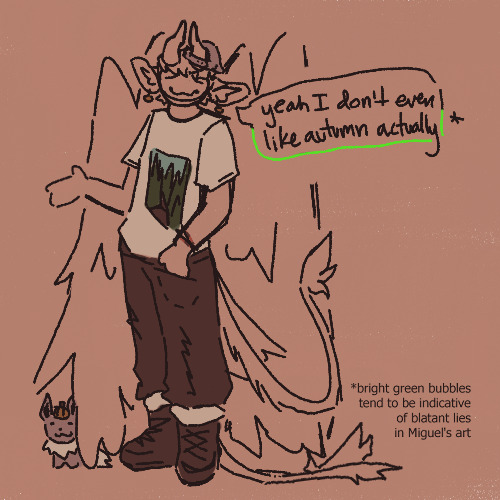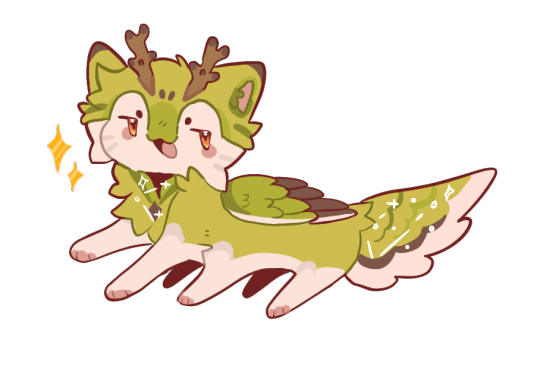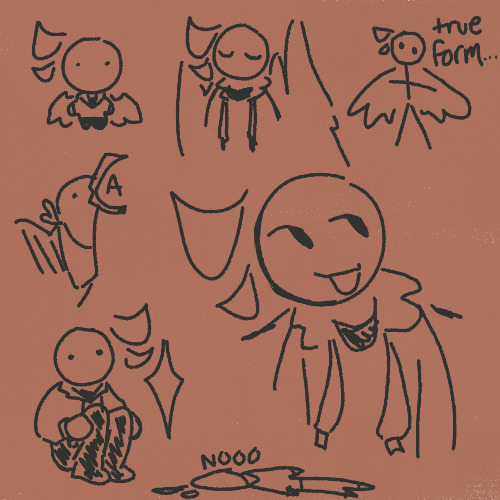He/Him, Self-Proclaimed Artist. I have evaporated from all fandoms as of now. Enjoys doodling a lot, feel free to look around (this blog is filled with random stuff lmao and the profile art is old help me)
Don't wanna be here? Send us removal request.
Text

my favorite season is here :3 (it began two weeks ago in my mind)
real outfit i wore to be in the autumn spirit two days ago
sorry not sorry about wonky art i know the head is a bit small
5 notes
·
View notes
Photo

reblog the money pigeon for a financially stable future
308K notes
·
View notes
Text
trans guy who doesn’t realize he’s turning into a werewolf because he assumes it’s all just normal side effects of starting testosterone
201K notes
·
View notes
Text
things people do after having a nightmare that isn’t crying
struggle to catch their breath
grab onto whatever’s close enough to ground themselves in reality
become nauseous / vomit
shake uncontrollably
sweat buckets
get a headache
things people do to combat having nightmares if they occur commonly
sleep near other people so they can hear the idle sounds of them completing tasks
move to a different sleeping spot than where they had the nightmare
leave tvs / radios / phones on with noise
just not sleep (if you want to go the insomnia route)
sleep during the day in bright rooms
things people with insomnia do
first, obviously, their ability to remember things and their coordination will go out the window
its likely they’ll become irritable or overly emotional
their body will start to ache, shake, and weaken
hallucinate if it’s been long enough
it becomes incredibly easy for them to get sick (and they probably will)
add your own in reblogs/comments!
36K notes
·
View notes
Text
You can only write regularly if you’re willing to write badly. You can’t write regularly and well. One should accept bad writing as a way of priming the pump, a warm-up exercise that allows you to write well.
– Jennifer Egan
1K notes
·
View notes
Text
He was forced to begin or end an activity at a time which didn't end in 30 or 00
27K notes
·
View notes
Text
Poison list
While it's important to approach writing with creativity and imagination, it's crucial to prioritize responsible and ethical storytelling. That being said, if you're looking for information on poisons for the purpose of writing fiction, it's essential to handle the subject matter with care and accuracy. Here is a list of some common poisons that you can use in your stories:
Hemlock: Hemlock is a highly poisonous plant that has been used as a poison in various works of literature. It can cause paralysis and respiratory failure.
Arsenic: Arsenic is a toxic element that has been historically used as a poison. It can be lethal in high doses and can cause symptoms such as vomiting, abdominal pain, and organ failure.
Cyanide: Cyanide is a fast-acting poison that affects the body's ability to use oxygen. It can cause rapid loss of consciousness and cardiac arrest.
Nightshade: Nightshade plants, such as Belladonna or Deadly Nightshade, contain toxic compounds that can cause hallucinations, respiratory distress, and even death.
Ricin: Ricin is a potent poison derived from the castor bean plant. It can cause organ failure and has been used as a plot device in various fictional works.
Strychnine: Strychnine is a highly toxic alkaloid that affects the nervous system, leading to muscle spasms, convulsions, and respiratory failure.
Snake Venom: Various snake venoms can be used in fiction as deadly poisons. Different snake species have different types of venom, each with its own effects on the body.
Belladonna: Also known as Deadly Nightshade, Belladonna contains tropane alkaloids such as atropine and scopolamine. Ingesting or even touching the plant can lead to symptoms like blurred vision, hallucinations, dizziness, and an increased heart rate.
Digitalis: Digitalis, derived from the foxglove plant, contains cardiac glycosides. It has been historically used to treat heart conditions, but in high doses, it can be toxic. Overdosing on digitalis can cause irregular heart rhythms, nausea, vomiting, and visual disturbances.
Lead: Lead poisoning, often resulting from the ingestion or inhalation of lead-based substances, has been a concern throughout history. Lead is a heavy metal that can affect the nervous system, leading to symptoms such as abdominal pain, cognitive impairment, anemia, and developmental issues, particularly in children.
Mercury: Mercury is a toxic heavy metal that has been used in various forms throughout history. Ingesting or inhaling mercury vapors can lead to mercury poisoning, causing symptoms like neurological impairment, kidney damage, respiratory issues, and gastrointestinal problems.
Aconite: Also known as Wolfsbane or Monkshood, aconite is a highly toxic plant. Its roots and leaves contain aconitine alkaloids, which can affect the heart and nervous system. Ingesting aconite can lead to symptoms like numbness, tingling, paralysis, cardiac arrhythmias, and respiratory failure.
Thallium: Thallium is a toxic heavy metal that can cause severe poisoning. It has been used as a poison due to its tastelessness and ability to mimic other substances. Thallium poisoning can lead to symptoms like hair loss, neurological issues, gastrointestinal disturbances, and damage to the kidneys and liver.
When incorporating poisons into your writing, it is essential to research and accurately portray the effects and symptoms associated with them. Additionally, be mindful of the potential impact your writing may have on readers and the importance of providing appropriate context and warnings if necessary.
If you want to read more posts about writing, please click here and give me a follow!

24K notes
·
View notes
Text
Do a logline for your story (it helps I swear).
Loglines are mostly used in film, I believe, and they are basically one-sentence summaries of the whole flick. They are very much audience/marketing focused, so no spoilers or twists revealed; it's what you tell to sell someone on the movie.
And yeah, I do believe you can do a logline for any story no matter how grand or complex you might think:
Paul, the young heir of a noble family, must become the Messiah of the planet Dune and its people if he wishes to survive against rival factions.
(Long sentence, but only one sentence.)
The real value of a logline is that it can help you reveal
what your story is about instead of just what happens in it.
By finding the core of the plot you can deduce (and more importantly, justify) the additional elements that make the story come alive. Does a funny scene fit if your logline is about a dark, revenge story? Could be!, as long as you know why it's there (maybe for breathing room, or to build atmosphere or for fleshing out characters).
It's a great starting point, at least. I'm personally quite skeptical and wary of overrelying on writing equations and formulas to make your story "right". Nevertheless, structure can be phased out whenever it has served its purpose, your story being like the green of a garden that has kept blooming and growing to the point that the pots and walls have been covered by what they have borne.
890 notes
·
View notes
Text
The symbolism of flowers
Flowers have a long history of symbolism that you can incorporate into your writing to give subtext.
Symbolism varies between cultures and customs, and these particular examples come from Victorian Era Britain. You'll find examples of this symbolism in many well-known novels of the era!
Amaryllis: Pride
Black-eyed Susan: Justice
Bluebell: Humility
Calla Lily: Beauty
Pink Camellia: Longing
Carnations: Female love
Yellow Carnation: Rejection
Clematis: Mental beauty
Columbine: Foolishness
Cyclamen: Resignation
Daffodil: Unrivalled love
Daisy: Innocence, loyalty
Forget-me-not: True love
Gardenia: Secret love
Geranium: Folly, stupidity
Gladiolus: Integrity, strength
Hibiscus: Delicate beauty
Honeysuckle: Bonds of love
Blue Hyacinth: Constancy
Hydrangea: Frigid, heartless
Iris: Faith, trust, wisdom
White Jasmine: Amiability
Lavender: Distrust
Lilac: Joy of youth
White Lily: Purity
Orange Lily: Hatred
Tiger Lily: Wealth, pride
Lily-of-the-valley: Sweetness, humility
Lotus: Enlightenment, rebirth
Magnolia: Nobility
Marigold: Grief, jealousy
Morning Glory: Affection
Nasturtium: Patriotism, conquest
Pansy: Thoughtfulness
Peony: Bashfulness, shame
Poppy: Consolation
Red Rose: Love
Yellow Rose: Jealously, infidelity
Snapdragon: Deception, grace
Sunflower: Adoration
Sweet Willian: Gallantry
Red Tulip: Passion
Violet: Watchfulness, modesty
Yarrow: Everlasting love
Zinnia: Absent, affection
62K notes
·
View notes
Text
questions to make each character unique**
** y'all you don't need to be able to answer all of these for every single character. just things to think of :]
have they / would they dye their hair?
do they maintain eye contact when talking?
what is their tell for lying?
do they have an accent?
what languages do they speak?
what kind of music do they listen to?
describe them in one word. what could happen to make them the opposite?
do they have any ghosts?
what is their worst fear?
what is a secret they do not tell anyone?
what motto do they live by?
if they were a famous figure, who would they be?
what great moment shaped them to be who they are? have they lived through the moment yet?
what is their fatal flaw?
how do they feel about jewelry? painted nails?
what kind of art are they?
do they play a sport?
do they have a speech impairment? how would that translate across paper?
what could you do to betray their trust?
what makes them smile?
if you had to choose something to make them go all john wick, who would it be?
do they swear? in what language?
how comfortable do they feel around strangers?
are they extraverted or introverted?
do they stand straight? what is their posture like?
what is their sleep schedule like
would they consciously invade someone else's body space? even a stranger's?
how do they feel about contact with other people? do they flinch?
are they the first to hug?
what would make them kill / stop them from killing?
how do they smile? do they have dimples?
what about their teeth -- braces? sharp teeth? dentures? yellow teeth? what about spots?
how do they get others' attention? clear their throat? punch them?
do they talk with their hands?
what is their final goal?
how would they describe happiness?
what is their biggest conflict? it doesn't need to be big for everyone else, only for them.
how do they react to death?
do they cry? how do they cry -- silent tears, sobbing, a swallow?
how do they react when someone else is crying? can they comfort a stranger?
how are they around pets? are they allergic to any?
following up, do they have allergies?
do they take off their shoes going into a stranger's house? would they offer to do the dishes?
do they call strangers by their first name or title?
how do they show fear? trying to hide it? shaking? etc.
what is their impact on other characters?
how could any of these change by the end of the story?
3K notes
·
View notes
Note
Do you have any tips on how to write a character who’s being manipulated?
Your blog has been very helpful to me! :) thanks a lot
Quick Tips for Writing Manipulative Characters
To convincingly write a character who is being manipulated, you must first understand how to write a believable manipulator. Often hidden in plain sight, manipulators pull the strings, guiding the actions of those who are often unaware that they're dancing to someone else's tune.
Let’s look at manipulators as puppet masters, exploring how they function and how their actions echo throughout your story. By understanding the manipulator, you'll better equip yourself to create realistic characters who are unwittingly under their sway.
How do they behave?
Play the victim to garner sympathy
Charming and persuasive
Twist and distort the truth to suit their agenda
Play mind games
Are silver-tongued
Passive-aggressive when confronted
Use guilt to control others
Don’t hesitate to lie or deceive
Demonstrate a sense of entitlement.
Project their feelings onto others
How do they interact?
Play different roles with different people
Prefer indirect communication to direct confrontation
Gaslight others, making them doubt their own perceptions
Shift the blame onto others
Exploit others' vulnerabilities
Use people’s secrets against them
Make others feel obligated or in debt to them
Use flattery to get their way
Create conflict between other characters
Deliberately create confusion and chaos
Describe their body language
Maintain intense eye contact
Use touch to seem friendly and intimate
Facial expressions often don't match their words
Use large, expressive gestures to dramatise
Have a confident and exaggerated posture
Soften expression to look more trustworthy
Smile artificially or excessively
Lean in close, invading personal space
Mirror others’ behaviours to seem more likeable
Mimic emotions they may not feel
Describe their attitudes
Believe they are always right
Feel entitled and superior
Lack empathy
Highly competitive
Often impatient and intolerant
Controlling and like to be in charge
Rarely apologize sincerely
Often play the martyr, acting self-sacrificing
Can be sceptical of others’ intentions
Kindness is often an act
Positive narrative effects
Paradoxically, manipulative characters can have a positive narrative effect on those they manipulate. These characters can act as a catalyst for change, pushing others to unlock hidden potential and indirectly teaching them to be more cautious. In the face of manipulation, characters can mature and grow resilience.
Manipulative characters can also reveal people’s true natures by tricking them into revelations or by fostering unity as others band together against them. Furthermore, their actions can create dramatic plot twists, make people question their own perceptions and realities, and add intrigue.
Negative narrative effects
Manipulators can cause emotional and psychological distress, breed distrust and insecurity, and disrupt relationships and friendships. These characters often lead others to make damaging decisions, creating a toxic environment.
By exploiting and exposing others' vulnerabilities, manipulators make individuals question their self-worth. The extent of their manipulation can even cause physical harm and lead to the downfall of other characters. Their lasting legacy? Emotional scars that define their victims long after the manipulator has exited the narrative.
1K notes
·
View notes
Text
You can analyze your favourite writers' techniques. You all know that right?
When you read a book or fic or whatever and are blown away by how amazing the writing is you can just go, "huh, how is the writer doing this? what things are they doing to get this affect?"
And if you can't figure it out you are allowed to google it. Check out YouTube videos, blog posts, and the wealth of posts on Tumblr even. If the writer is famous enough there might even be full-length academic papers on Google Scholar or JSTOR, or even 100+ page published books dissecting their style (Tolkien, for example, if you like his style). If you still can't find the information, ask someone. Ask more experienced writers or writers who write in a similar style. Ask writing advice blogs/channels. Ask the writer/author themselves.
And if you still can't figure it out, you can keep trying things and reading similar stuff, observing until it clicks.
I just say this because, well, reading someone else's writing and feeling like yours is horrible in comparison is pretty much a universal writer experience. I see a lot a posts on Tumblr offering encouragement like, "it is okay if you writing isn't like theirs, you just have different strengths," and "actually your writing is better than you think it is, you've just been staring at it too long." And these are valid.
But also, just because you can't write like that now doesn't mean you can't learn. You don't have to resign yourself to a particular style just because it comes easier to you. It is completely okay to be happy with the style you have, but it is also okay to not be happy with it and wish you could write like your favourite writers instead.
Just... when you get that, "oh my gosh, I will never be as good as them," feeling, maybe try figuring out what it is they are doing that you like so much. Maybe being patient with yourself doesn't mean accepting that this is your best work. Maybe it means accepting that this isn't and that it will take time, knowledge, and practice to get there. But you will, you just have to keep trying.
3K notes
·
View notes
Text

Bug lad
Quick sketch I did a while ago
12 notes
·
View notes



